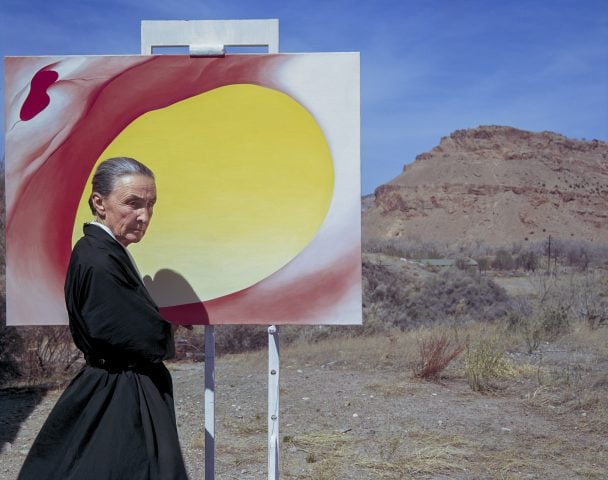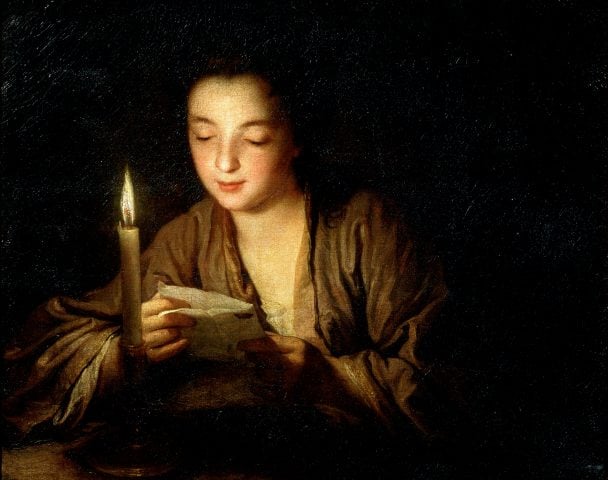Auctions
Oldest Ten Commandments Tablet Rakes in More Than $5 Million at Auction
The coveted lot hammered after 10 minutes of furious bidding.
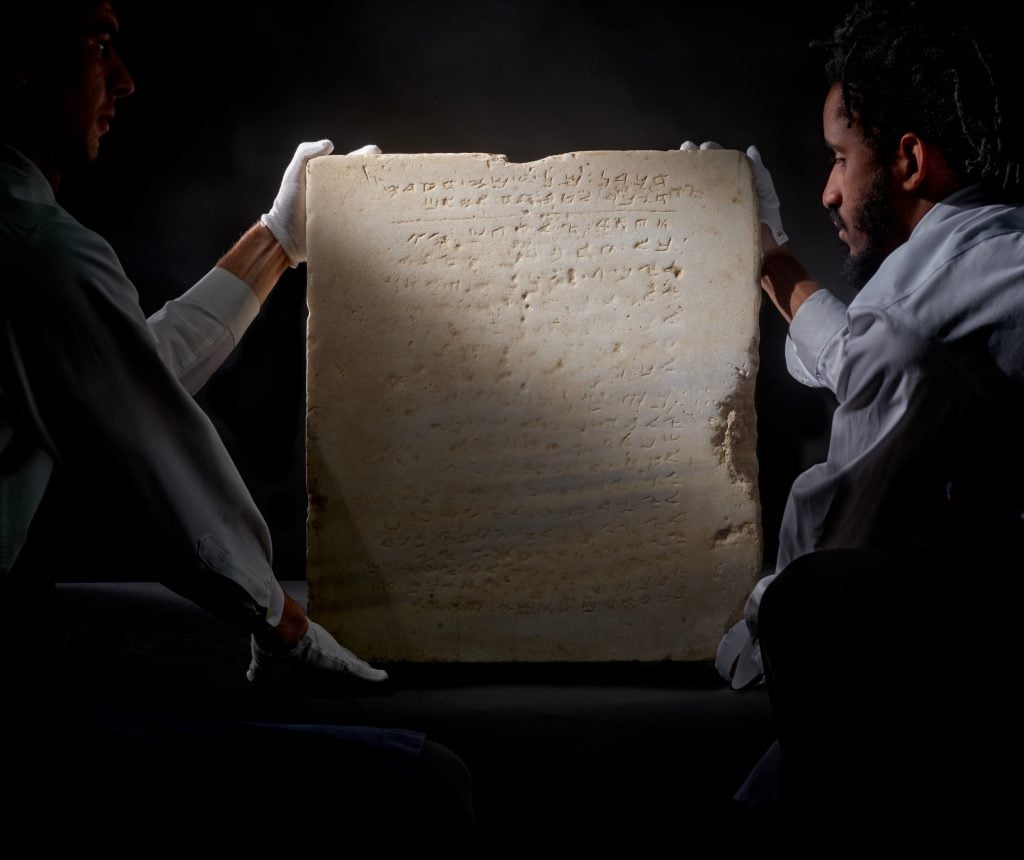
The oldest stone tablet depicting the Ten Commandments of Jewish and Christian faiths fetched a whopping $5.04 million when it sold at Sotheby’s New York on December 18.
According to the auction house, the lot saw more than 10 minutes of furious bidding before being won by an anonymous buyer who intends to donate it to an Israeli institution. The result soared past the pre-sale estimate of $1–2 million.
Weighing 115 pounds and measuring about two feet in height, the artifact previously sold in 2016 for $850,000 in a Heritage Auctions sale in Beverly Hills to an unknown buyer. At the time, it was owned by New York’s Living Torah Museum, which insisted the buyer display the artifact to the public in agreement with the Israel Antiquities Authority, which has designated the piece a “National Treasure.”
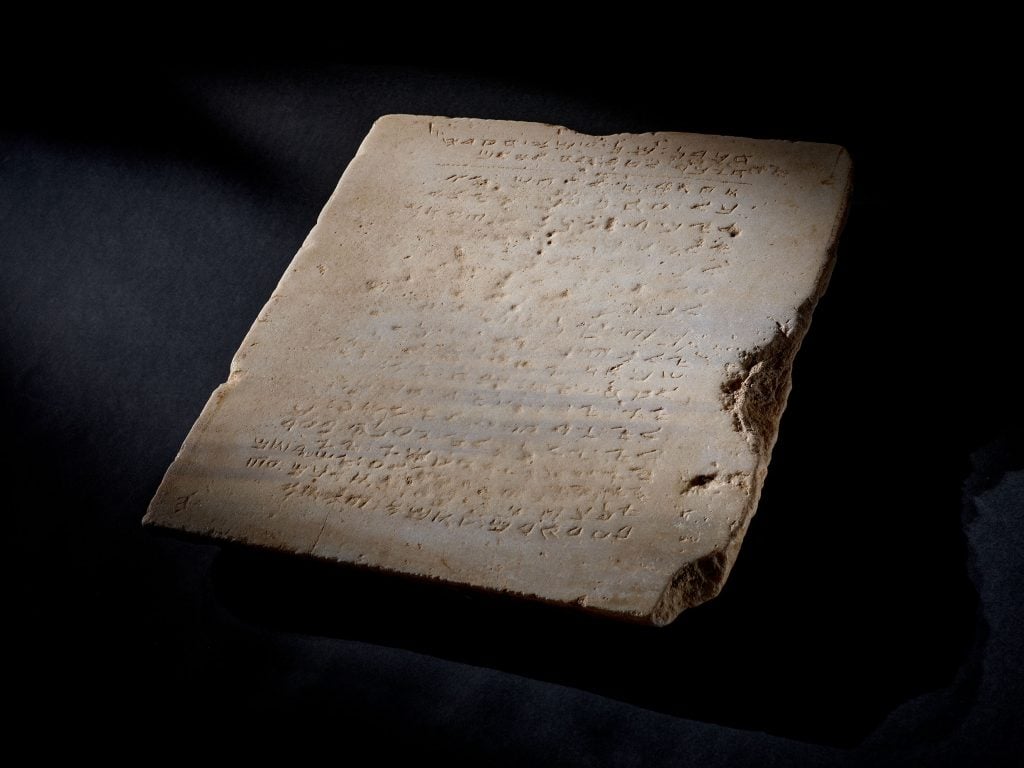
The oldest stone tablet depicting the Ten Commandments. Photo courtesy of Sotheby’s.
The tablet dates to the late Roman-Byzantine era, around 300–640 C.E., and. is believed to have adorned the entrance to a synagogue that was later destroyed by the Romans or the Crusaders. It contains 20 lines of Paleo-Hebrew script, including nine of the commandments as commonly found in the Book of Exodus.
However, the tenth directive—to not take the name of Lord in vain—has been swapped with an instruction to worship on Mount Gerizim, a holy site specific to the Samaritans located near what is now the Palestinian city of Nablus in the occupied West Bank.
The relic was rediscovered in 1913 during railway excavations near the historic Palestinian town of Yibna, which was conquered by British forces in 1917. The town was eventually depopulated during the 1948 Israeli-Arab war, shortly after Israel was created. It remains an “archaeological site” near what is now the town of Yivne, created by Israel in 1949.
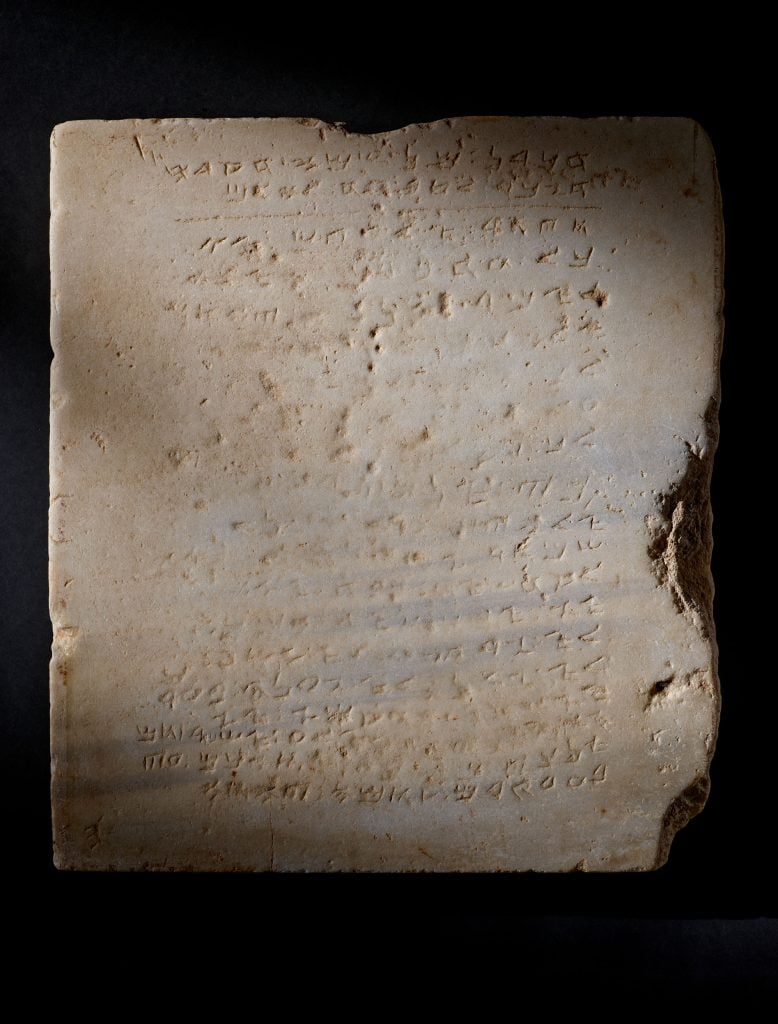
The oldest stone tablet depicting the Ten Commandments. Photo courtesy of Sotheby’s.
After its discovery, the tablet was believed to have been acquired by an Arab man who displayed them on the floor of his courtyard, where it was partially worn down. In 1943, it was acquired by a Y. Kaplan, who wrote a scholarly article on it with the Russian-born archaeologist Yitzhak Ben-Zvi, who became Israel’s second president.
“This remarkable tablet is not only a vastly important historic artifact, but a tangible link to the beliefs that helped shape Western civilization,” Richard Austin, Sotheby’s Global Head of Books & Manuscripts, said in a statement.
He continued: “To encounter this shared piece of cultural heritage is to journey through millennia and connect with cultures and faiths told through one of humanity’s earliest and most enduring moral codes.”


